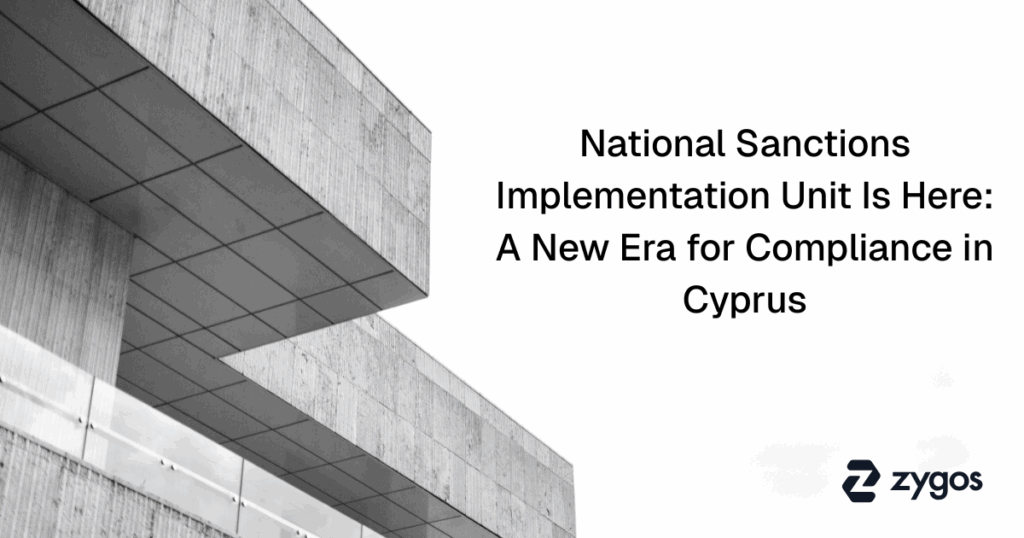In July 2025, Cyprus introduced a key institutional reform: the creation of the National Sanctions Implementation Unit (NSIU) under the Ministry of Finance. This new body is tasked with enforcing both EU and national sanctions. It responds directly to European Directive 2024/1226. The goal is straightforward. Cyprus aims to meet international compliance standards while strengthening its position as a credible jurisdiction for business.
What the NSIU Does
The NSIU brings together responsibilities that were previously spread across different government departments. It will:
- Investigate violations and impose administrative fines of up to €100,000
- Issue guidance, licenses, and enforcement decisions
- Coordinate with the Central Bank, law enforcement, and the private sector
- Support businesses with practical direction on sanctions compliance, using models like the UK’s Office of Financial Sanctions Implementation
Why This Matters
Cyprus initially missed the EU’s May 2025 deadline to establish a national sanctions authority. The NSIU now fills that gap and signals a strong commitment to legal transparency and EU alignment.
Finance Minister Makis Keravnos made the intent clear. This unit is essential for protecting the country’s credibility. It is not just a regulatory requirement. It is a step toward rebuilding international trust and attracting responsible investment.
What to Expect
- Fully operational by end of 2025. Recruitment for legal, technical, and investigative staff begins in August.
- Centralized oversight. One body will now lead sanctions enforcement, reducing confusion.
- Support from international partners. The UK is offering training and technical advice. The United States has already supported reform efforts through a nine-month FBI-led review.
Legal and Industry Concerns
The Cyprus Bar Association and other stakeholders have raised valid concerns:
- Some procedures may be conducted in English, which could raise constitutional questions
- There is limited opportunity for appeals in cases of administrative error
- Several voices have called for stronger institutional independence and oversight
Parliament is reviewing these issues, and further legal refinements are expected in the coming months.
Why It Matters for Legal and Compliance Professionals
This reform has practical implications for professionals in Cyprus and abroad:
- Clarity and focus. A single point of contact means faster, more consistent decisions
- Reduced risk. Better guidance leads to fewer compliance gaps
- Stronger alignment. Businesses can start applying global best practices, including those used in the UK
- Operational readiness. Early adopters will face fewer disruptions when enforcement begins
- Tech-enabled compliance. Tools like Zygos KYC/AML support automation, document tracking, and reporting—designed specifically for Cyprus’s regulatory framework
In Summary
The establishment of the NSIU marks a meaningful step forward for Cyprus. It strengthens compliance, clarifies responsibilities, and enhances the country’s standing in the EU and beyond. For firms in law, finance, or corporate services, now is the time to prepare.
Learn how Zygos can support your compliance framework – book your demo today!



